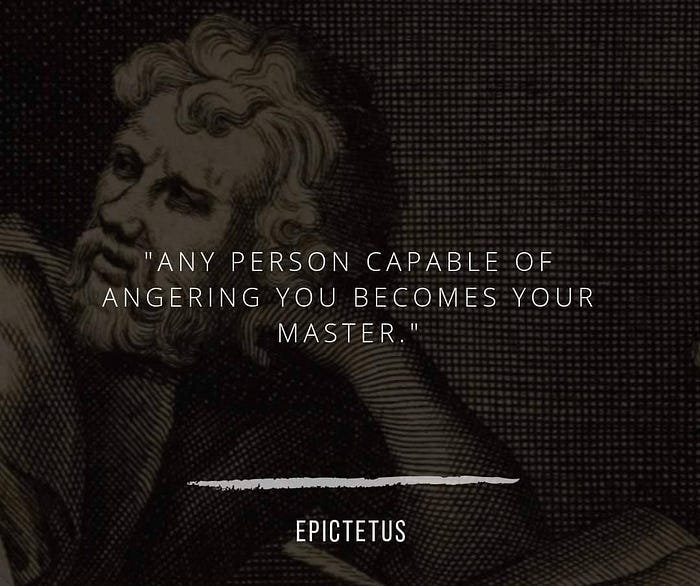Member-only story
“No plague has cost the human race more.” ~ Seneca

Ancient Stoics recognized anger to be a destructive emotion. While we may feel good while expressing anger, most of us don’t like being angry and we don’t generally like being around angry people.
Galen of Pergamon, one of the most celebrated physicians and medical researchers of the ancient world, wrote a book about mental illness called On Passions and Errors of the Soul. The passion considered most dangerous by Galen and other ancient writers is anger. That’s because anger is, in a sense, the most interpersonal of emotions. It poses a threat not only to the angry individuals themselves but also to others around them and society as a whole.
The consequences of anger are often very destructive. Sometimes they cannot be reversed. Even the most powerful man in the world may be unable to undo the harm he’s done in a fit of violent rage. The following story will explain the destructive nature of anger
Emperor Hadrian had a violent temper tantrum one day because an unlucky slave did something to annoy him. Hadrian was writing at the time and happened to have a stylus in his hand, the Roman equivalent of a fountain pen. In a moment of madness, he stabbed the slave right in the eye with it, blinding him. Later, when Hadrian had calmed down and was feeling highly ashamed of himself, he summoned the man and asked what he could do to make amends. The slave was silent for quite a long time but eventually found the courage to speak frankly to the emperor: “All I want”, he said, “is my eye back.”
Here are few ways to do control your anger.
1. Recognize the destructive nature of the anger, and it outweighs all necessities of delivering the anger.
2. Anger will make you unbalance, recognize the unbalance in the inner peace do more harm than any good.
3. Choice your close circle wisely, since they can affect your emotions easily.
4. If you have a hot temper, use any form of art, sports or hobby to ease the mind
5. Learn about your mood swings and control the triggers as early as possible.
6. Resist the impulse to be curious
7. Don’t seek reasons to be angry
8. Whenever you get angry; clear your mind and wait until it subsides
9. Develop tolerance
10. Heal rather than punish
11. Turn anger into appreciation
12. Self-reflection
